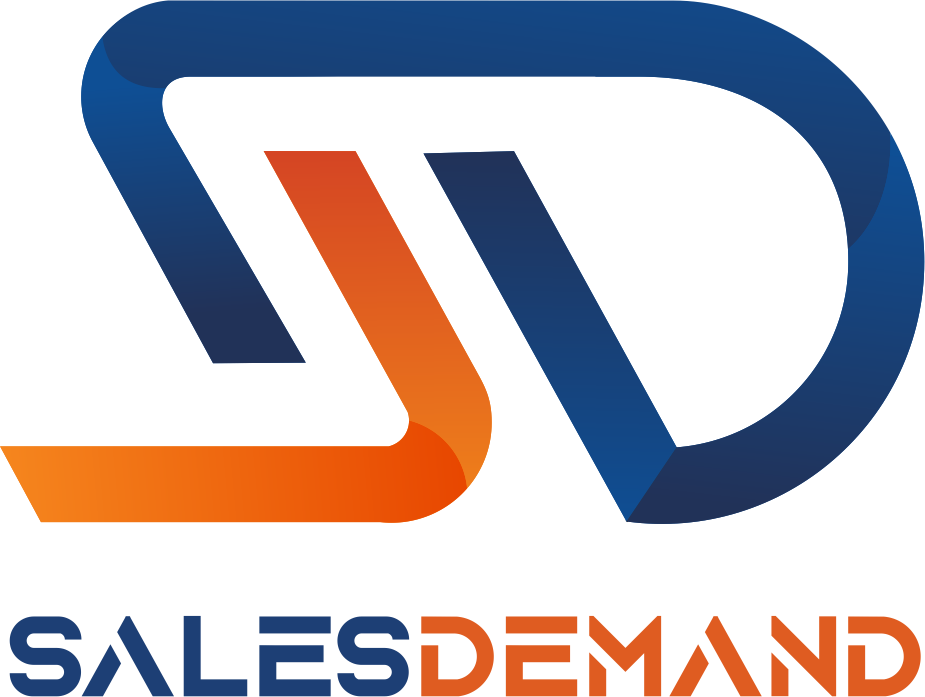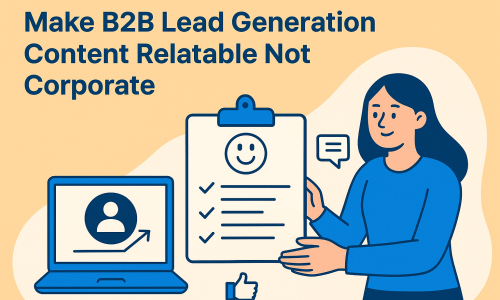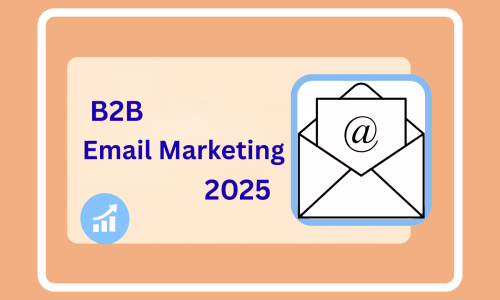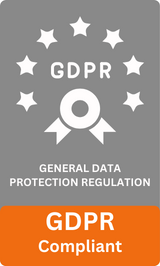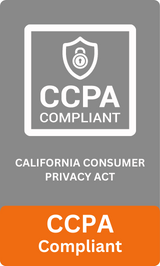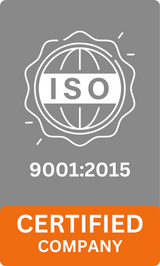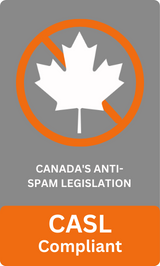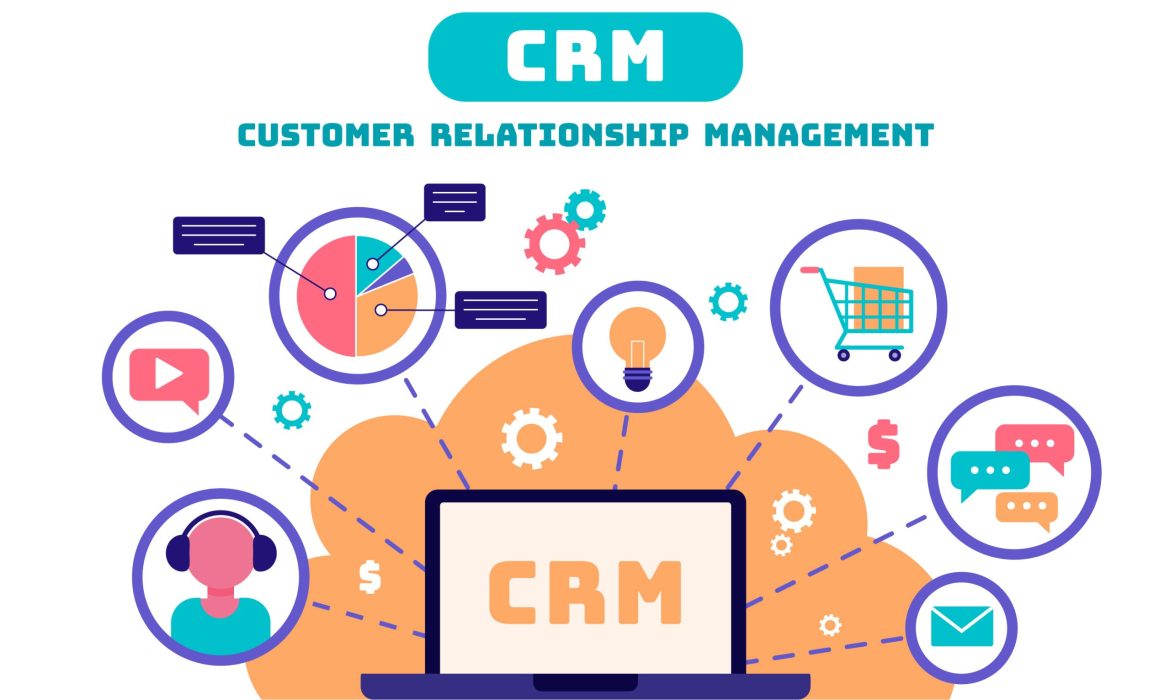
Imagine trying to win a Formula 1 race with a bicycle — that’s what managing customer relationships without a powerful CRM feels like today. In today’s competitive B2B marketplace, businesses can no longer rely on spreadsheets and basic tools to manage their customer relationships.
According to Grand View Research, the global CRM market was valued at USD 58.82 billion in 2022 and is expected to grow at a compound annual growth rate (CAGR) of 13.9% from 2023 to 2030. In India alone, CRM adoption among mid-sized businesses grew by 23% in 2023.
This surge highlights the critical role the best B2B CRM software plays in scaling operations, streamlining customer management, enhancing customer experiences, and ultimately boosting revenue.
Whether you’re an SME, an IT firm, or a manufacturing giant, adopting the right CRM is pivotal to transforming your sales and marketing strategies.
Table of Contents
Toggle1# What is B2B CRM Software?
B2B CRM (Customer Relationship Management) software is designed specifically to help businesses manage interactions with other businesses. It stores and organizes vital information like contact details, communication history, deals in progress, and customer support issues. Core functions include:
- Contact Management
- Opportunity Management
- Workflow Automation
- Sales Forecasting
- Reporting and Analytics
How B2B CRM Differs from B2C CRM
Unlike B2C CRMs that focus on short, transactional relationships, B2B CRMs cater to longer, multi-stakeholder, and complex sales cycles. B2B deals often involve decision-making chains, multi-phase negotiations, and long-term engagements, requiring a CRM to:
- Track multiple touchpoints
- Manage team collaborations
- Customize communications per client department
Example: Salesforce CRM offers “account-based marketing” features tailored specifically for B2B workflows.
2# Key Benefits of Using B2B CRM Solutions
1. Better Customer Segmentation
Segmentation enables businesses to craft highly personalized campaigns. With CRM, you can segment customers based on industry, revenue, business size, location, and engagement history, leading to better targeting and higher conversion rates.
2. Streamlined Sales and Marketing Processes
With automation tools like lead scoring, task reminders, and email nurturing campaigns, B2B CRMs save significant manual work. Research shows that businesses using CRM solutions improve sales productivity by up to 34%.
3. Enhanced Customer Experience and Retention
It centralizes customer interactions, ensuring every department accesses up-to-date customer insights. Personalized attention boosts loyalty; Gartner reports that CRM applications can increase customer retention rates by as much as 27%.
3# Top Features to Look for in the Best B2B CRM Software
1. Lead Management Capabilities
From capturing leads from websites to automatic lead scoring based on engagement, the best B2B CRM ensures you never miss a valuable prospect.
Example: Freshsales’ Freddy AI helps prioritize leads most likely to convert.
2. Automation and Workflow Customization
Advanced CRMs let you customize workflows to match your business process. From automating sales sequences to customer onboarding journeys, customization ensures efficiency.
3. Integration with Other Tools
Today’s businesses use a myriad of tools—ERP systems, email platforms, marketing automation tools, and more. A CRM must integrate seamlessly to avoid data silos.
Tip: Always check if the CRM offers pre-built integrations or API support.
4. Advanced Analytics and Reporting
CRMs should provide actionable insights, not just raw data. Look for platforms that offer predictive analytics, customizable dashboards, and KPIs tracking.
4# Top 10 Best B2B CRM Software Options for 2025
1. Salesforce CRM
Salesforce CRM stands tall as the most recognized name in the CRM space. Designed mainly for enterprises, Salesforce offers deep customization options, robust integrations, and intelligent AI through its Einstein feature.
Best for: Enterprises managing complex sales processes across multiple territories.
Key Features:
- Einstein AI provides predictive lead scoring and recommendations.
- Customizable dashboards and reporting tools.
- Industry-specific solutions (Finance, Healthcare, Manufacturing).
Pros:
- Highly scalable for businesses of all sizes.
- Supports a massive ecosystem of third-party apps.
Cons:
- Expensive for small to mid-sized businesses.
- Setup and maintenance can be complex, often requiring Salesforce-certified experts.
2. HubSpot CRM
HubSpot CRM is known for its user-friendly interface and free entry-level version, making it a perfect choice for startups and SMBs.
Best for: Startups, SMBs entering CRM for the first time.
Key Features:
- Unified marketing, sales, and customer service modules.
- Powerful contact and deal management.
- Built-in email tracking and meeting scheduler.
Pros:
- Freemium model offers great value.
- Easy-to-use drag-and-drop interface.
Cons:
- Advanced automation and reporting features are locked behind paid tiers.
3. Zoho CRM
Popular among SMEs, particularly in India, Zoho CRM offers robust features at affordable pricing, tailored to businesses seeking scalability.
Best for: SMEs and Indian businesses.
Key Features:
- Multichannel communication (email, phone, chat, social media).
- Zia AI for sales predictions and smart insights.
- Territory management.
Pros:
- Affordable with feature-rich plans.
- Strong mobile app for field sales teams.
Cons:
- Interface can seem cluttered initially.
4. Freshsales CRM
Freshsales by Freshworks delivers an all-in-one CRM solution with an emphasis on ease of use and automation.
Best for: High-velocity sales teams.
Key Features:
- Freddy AI assists in lead scoring and insights.
- Integrated telephony and email tools.
- Visual sales pipelines.
Pros:
- Modern UI, easy learning curve.
- Reasonably priced with solid support.
Cons:
- Fewer third-party integrations compared to Salesforce or HubSpot.
5. Pipedrive
Designed by salespeople, for salespeople, Pipedrive is laser-focused on optimizing sales processes.
Best for: Sales-driven teams wanting pipeline visibility.
Key Features:
- Highly visual, customizable sales pipelines.
- Automation of repetitive administrative tasks.
- Smart contact data enrichment.
Pros:
- Exceptionally intuitive for sales teams.
- Boosts sales productivity through focused workflows.
Cons:
- Less emphasis on marketing automation.
6. Microsoft Dynamics 365
A powerhouse CRM+ERP suite perfect for enterprises that already rely on Microsoft products.
Best for: Large corporations and multi-divisional companies.
Key Features:
- Seamless integration with Office 365 and LinkedIn Sales Navigator.
- AI-driven insights and virtual agents.
- Strong data governance and compliance tools.
Pros:
- Highly customizable and scalable.
- Strong reporting and analytics capabilities.
Cons:
- High total cost of ownership.
- Long and complex implementation process.
7. SugarCRM
SugarCRM offers businesses complete flexibility with open-source options and advanced automation capabilities.
Best for: Companies needing heavy customization.
Key Features:
- SugarPredict AI-driven forecasts.
- Sales, marketing, and service automation modules.
- Open APIs for custom integrations.
Pros:
- Full control over data and deployments.
- No-code to low-code customization options.
Cons:
- Technical expertise required to maximize platform.
8. Creatio CRM
Formerly known as bpm’online, Creatio is a standout for organizations aiming to digitize processes quickly.
Best for: Businesses looking for rapid process automation.
Key Features:
- Low-code/no-code development platform.
- Process Designer for workflow automation.
- Omnichannel customer communications.
Pros:
- Agile, flexible, and highly adaptable.
- Fast implementation compared to traditional CRMs.
Cons:
- Pricing higher than simpler CRM platforms.
9. Insightly
Insightly blends CRM functionality with project management features, ideal for service-based businesses.
Best for: Mid-sized project-oriented firms.
Key Features:
- Advanced project management tied to customer records.
- Workflow automation and lead routing.
- Relationship linking between contacts, organizations, and projects.
Pros:
- Consolidates sales and project tracking.
- User-friendly UI.
Cons:
- Reporting and dashboard customizations are somewhat limited.
10. Nimble CRM
Nimble brings together CRM and social media tracking, helping relationship-driven businesses grow networks organically.
Best for: Small businesses and solopreneurs focusing on relationship management.
Key Features:
- Automatic contact enrichment from social profiles.
- Unified inbox for all communications.
- Group messaging and segmentation.
Pros:
- Lightweight, highly intuitive.
- Integrates well with Office 365 and G Suite.
Cons:
- Not suited for businesses with long, complex sales cycles.
5# How to Choose the Right B2B CRM for Your Business
- Analyzing Business Needs: Define clear objectives: Lead generation, customer service, account-based marketing, etc.
- Comparing Costs vs Features: Don’t just look at base pricing. Factor in integration costs, add-ons, support fees, and scaling charges.
- Scalability and Flexibility Considerations: Choose a CRM that can scale without breaking the bank. Look for modular add-ons and flexible data storage options.
Pro Tip: Always opt for CRMs that offer sandbox environments for testing.
6# Case Studies:
1. Small Business Success Stories
An Ahmedabad-based logistics startup, “QuickMove,” implemented Zoho CRM and witnessed a 35% boost in lead conversion rates within eight months.
2. Large Enterprise Case Studies
“CloudSoft Solutions,” a SaaS enterprise in New York, migrated to Salesforce CRM. Result: 50% faster deal closures and a 20% year-over-year revenue increase.
7# Challenges in Implementing B2B CRM Systems
Common Pitfalls
- Poor user adoption due to lack of training
- Overcomplicated workflows
- Insufficient integration with existing systems
Solutions and Best Practices
- Conduct employee workshops
- Phase-wise deployment
- Regular CRM audits
Fact: Companies that invest in CRM training programs see a 3.2x increase in user adoption rates.
8# Future Trends in B2B CRM Software
- AI and Predictive Analytics: By 2025, over 60% of CRMs will feature AI-driven insights, automating sales predictions and opportunity scoring.
- Hyper-personalization in B2B Sales: CRMs will increasingly use big data to create individualized client experiences, a tactic proven to increase deal sizes by 20%.
- Increasing Importance of Data Privacy and Security: With regulations like GDPR and India’s DPDP Bill, CRMs must offer end-to-end encryption, role-based access controls, and compliance certifications.
Conclusion
Choosing the best B2B CRM software requires strategic evaluation of your current processes, future goals, and operational complexities. From lead management to customer retention, the right CRM acts as a catalyst for business transformation. Whether you’re eyeing Salesforce’s powerhouse capabilities or HubSpot’s agility, investing wisely today will yield rich dividends tomorrow.
FAQs
Q1. What is the best B2B CRM software for small businesses?
HubSpot CRM and Zoho CRM are great choices for small businesses, they’re affordable, easy to use, and scale as you grow.
Q2. Can B2B CRM software integrate with marketing tools?
Yes. Most CRMs connect with marketing automation tools like HubSpot, Salesforce Pardot, and Mailchimp to streamline workflows.
Q3. How long does it take to implement a B2B CRM?
Setup can take anywhere from a few weeks for basic systems to several months for large, customized CRM deployments.
Q4. How can I measure the ROI of a CRM system?
Track key metrics such as customer retention, lead conversion rate, and sales cycle duration before and after implementation.
Q5. What are the best free B2B CRM options?
Top free choices include HubSpot CRM (forever free plan), Zoho CRM (free for up to 3 users), and Freshsales (limited free version).
